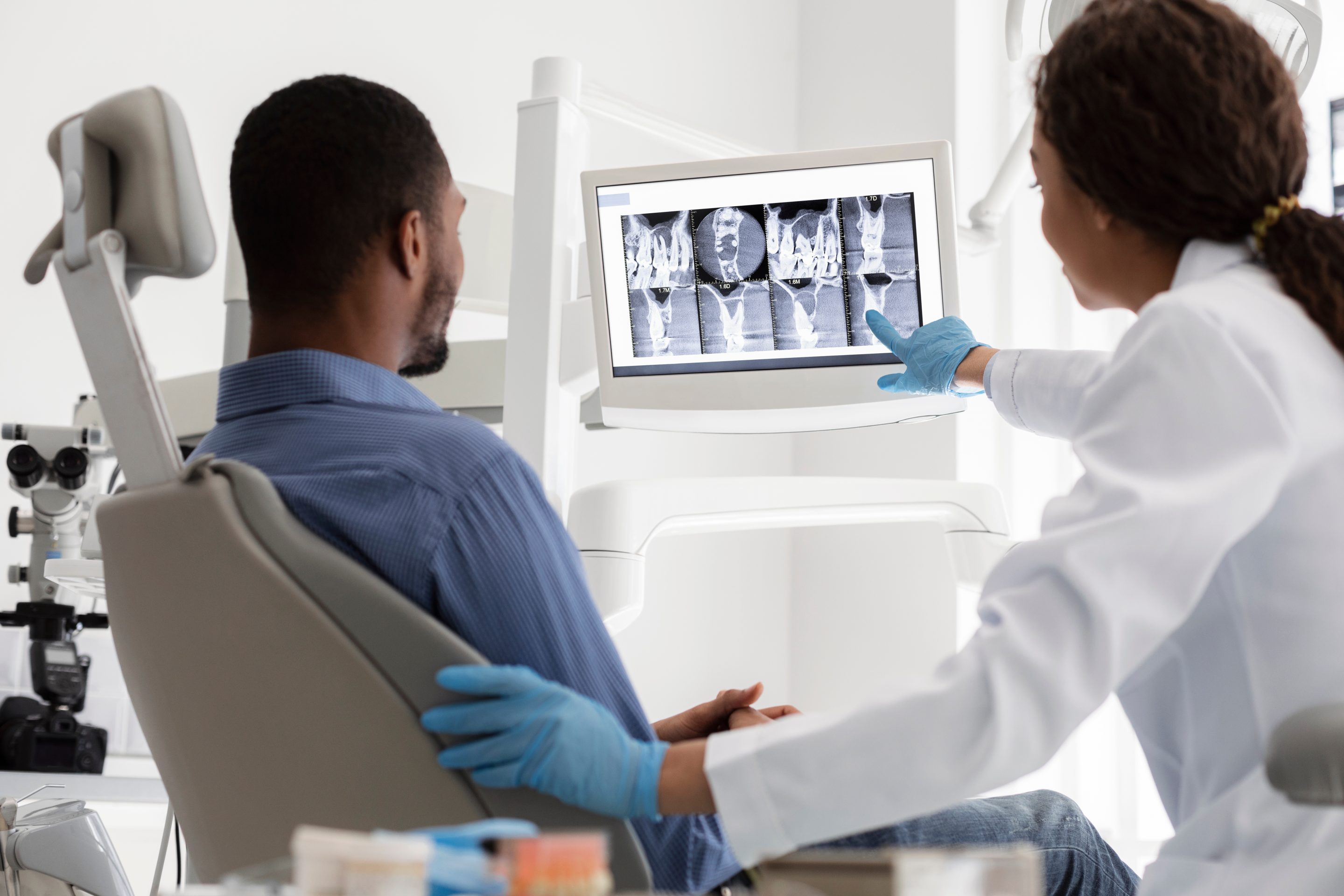Dental implants have revolutionized the way we treat missing teeth. With materials like titanium and zirconia leading the way, patients now have reliable, durable, and esthetically pleasing solutions. In this blog post, we’ll dive into the intricacies of both these materials, comparing their pros and cons, and addressing the all-important question of biocompatibility.
Titanium Implants
Pros:
- Time-Tested: Titanium has been used in dental implants for decades, showcasing an impressive track record.
- Strong and Durable: It’s known for its strength and ability to withstand daily biting and chewing.
- Osseointegration: Titanium implants typically have a high success rate due to their ability to fuse effectively with the jawbone.
- Versatility: Suitable for a variety of clinical situations due to various available designs.
Cons:
- Metallic Color: The greyish hue can sometimes show through thin gum tissue or at the gum line, which may be aesthetically displeasing to some.
- Allergies or Sensitivities: While rare, some people may have allergies or sensitivities to metals.
Zirconia Implants
Pros:
- Esthetically Pleasing: Zirconia is a ceramic and is tooth-colored, blending seamlessly with the natural teeth.
- Metal-Free: Ideal for patients who prefer a holistic approach or are allergic to metals.
- Biocompatibility: Exhibits excellent biocompatibility, minimizing the chance of adverse reactions.
- One-Piece Design: Fewer components mean there’s a lower risk of bacterial growth between parts.
Cons:
- Newer on the Market: Hasn’t been in use as long as titanium, meaning long-term studies are still ongoing.
- Brittleness: While strong, zirconia can be more brittle than titanium, making it potentially less durable in the long run.
Which is More Biocompatible: Titanium or Zirconia?
Both titanium and zirconia boast impressive biocompatibility. However, the advantage of zirconia lies in its metal-free composition, making it a more appealing option for those concerned about metal allergies or sensitivities. Nonetheless, titanium’s long history and track record have shown it to be exceedingly compatible with the human body. In short, both are excellent choices; the decision often comes down to individual preferences and specific clinical scenarios.
FAQ
- Is one material clearly better than the other?
No, both materials have their unique advantages. Your Lake Forest, CA dentist will recommend the best material based on your individual needs and preferences. - Can I develop an allergy to titanium implants?
While rare, allergies to titanium do exist. If you have a known metal allergy, it’s crucial to inform your dentist. - Is the price different between the two materials?
There might be some price variation based on the complexity of the procedure, material choice, and other factors. It’s best to discuss this directly with your dental office. - How long do both implants last?
With proper care and oral hygiene, both titanium and zirconia implants can last a lifetime. Regular dental check-ups are essential to ensure their longevity.
At Baker Ranch Dental, located in the heart of Lake Forest, CA, we prioritize your oral health and comfort. Whether you choose titanium or zirconia, our team is here to ensure you receive the best care possible. To learn more or to schedule a consultation, please reach out to us!
For more enlightening dental blogs and insights, stay connected with Baker Ranch Dental – Your Lake Forest, CA Dental Expert!

